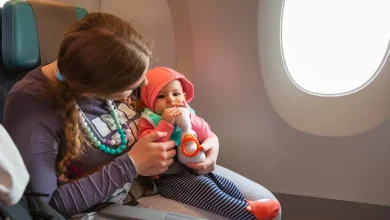Traveling During First Trimester of Pregnancy
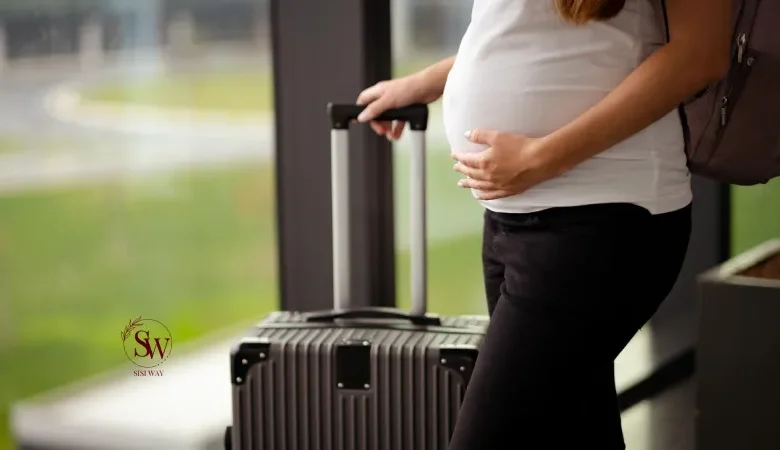
Traveling During 1st Trimester
The first trimester of pregnancy is a special and delicate time for expectant mothers. It’s natural to have concerns about traveling during this period, considering the changes happening in your body and the well-being of your growing baby. In this article from sisiway, we will explore important tips and considerations for traveling during first trimester of pregnancy, helping you make informed decisions and ensure a safe and enjoyable journey. We will answer to the question that “journey during first trimester of pregnancy can be safe or not?”
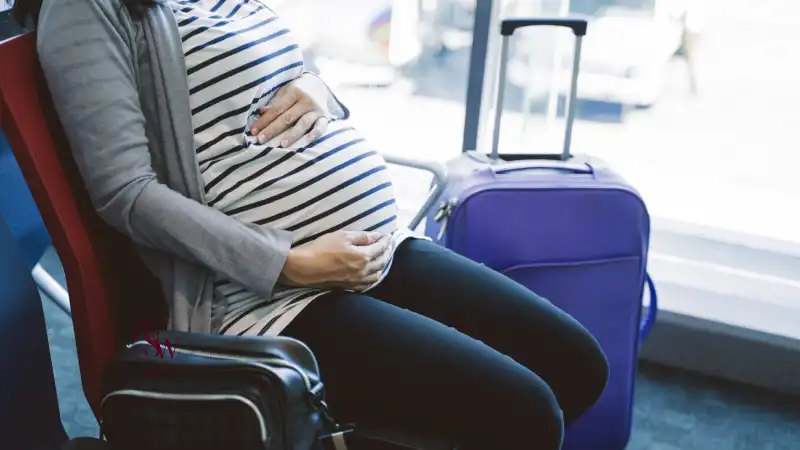
Journey During First Trimester of Pregnancy
Traveling during first trimester of pregnancy has regulations that need to be considered to avoid any risks to both you and the fetus, as it is the most sensitive period of your life. Below are 8 important points to be familiar with regarding traveling during the first trimester of pregnancy.
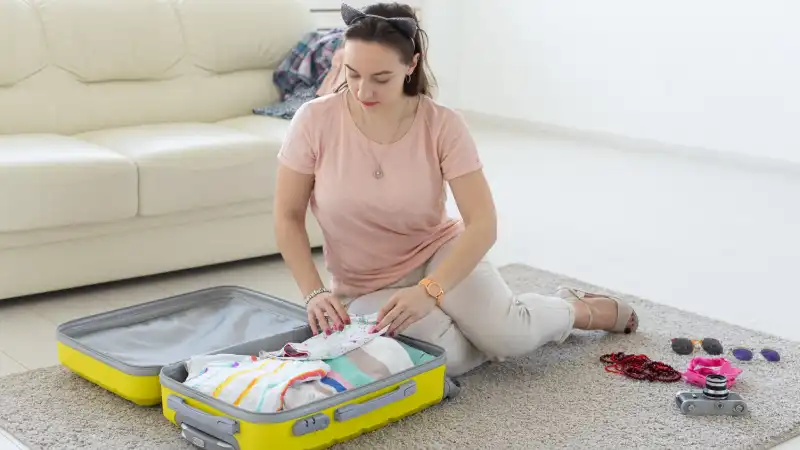
-
Consult with Your Healthcare Provider
Consulting with your healthcare provider is of utmost importance when planning to travel during the first trimester of pregnancy. Your healthcare provider has a comprehensive understanding of your medical history, any pre-existing conditions, and the unique aspects of your pregnancy. They can provide personalized guidance and assess whether it is safe for you to travel based on your specific circumstances.
During your consultation, your healthcare provider will address any concerns you may have and provide recommendations tailored to your needs. They can offer advice on managing common symptoms such as morning sickness, fatigue, and increased urination during travel. They may also discuss any necessary precautions to take, such as avoiding certain activities or adjusting your medication regimen if applicable. By seeking their professional opinion, you can make informed decisions that prioritize your health and the well-being of your baby, ensuring a safe and comfortable travel experience during this delicate phase of pregnancy. Remember, open communication with your healthcare provider is key, so don’t hesitate to ask questions and share any relevant information that may influence your travel plans.

-
Choose Your Destination Wisely
When traveling during the first trimester of pregnancy, it is crucial to choose your destination wisely. Consider factors such as the availability of medical facilities, the prevalence of diseases, and the overall safety of the environment. Opt for destinations that have well-established healthcare systems and easy access to prenatal care. This ensures that you can receive proper medical attention and support if needed during your trip.
Additionally, it is important to be aware of any potential health risks associated with your chosen destination. Some regions may have a higher risk of contagious illnesses or foodborne diseases. Stay informed about any outbreaks or health advisories in the area you plan to visit. If you have any doubts or concerns, consult with your healthcare provider to assess the suitability of the destination and discuss any necessary preventive measures. By selecting a safe and suitable destination, you can enjoy your travels with peace of mind, knowing that you have taken necessary precautions to protect both yourself and your baby.
Read more: Rules You Should Know about Tanning
-
Plan for Comfort and Hydration
Planning for comfort and hydration is essential when traveling during the first trimester of pregnancy. Many women experience symptoms like fatigue and nausea during this period, so it’s important to prioritize your well-being. Choose comfortable transportation options that allow you to stretch your legs and take breaks as needed. If you’re traveling by car, plan for frequent rest stops to rest and use restroom facilities. If you’re flying, consider booking an aisle seat for easy access to the restroom and take short walks during the flight to improve circulation.
Staying hydrated is crucial during pregnancy, especially while traveling. Carry a refillable water bottle and drink water regularly throughout your journey. Dehydration can worsen symptoms like fatigue and nausea, so make it a point to drink enough fluids. However, be mindful of the quality of water you consume. Opt for bottled water or ensure that tap water is safe for drinking in the destination you’re visiting. If you’re unsure, consult with your healthcare provider or rely on bottled water to stay properly hydrated.
By planning for comfort and prioritizing hydration, you can help alleviate some of the discomforts associated with travel and support your overall well-being during the first trimester of pregnancy. Remember to listen to your body, take breaks when needed, and stay hydrated to ensure a more comfortable and enjoyable travel experience.
Read more: How to Travel Alone?

-
Pack Essentials:
When traveling during the first trimester of pregnancy, packing essential items is crucial to ensure a comfortable and prepared journey. Start by packing any prescribed medications that you are currently taking, along with a sufficient supply for the duration of your trip. Don’t forget to include prenatal vitamins to support your nutritional needs during pregnancy. It’s also a good idea to pack snacks that can help alleviate nausea, such as crackers or ginger candies, as well as other healthy snacks to keep your energy levels up.
In addition to medication and snacks, consider packing a copy of your prenatal medical records. This can be helpful in case of any unexpected medical situations or if you need to seek medical care while away from home. Having your medical records on hand can provide important information to healthcare providers and ensure continuity of care. Lastly, make sure to have contact information for your healthcare provider readily available, including their phone number and email address. This way, you can easily reach out to them in case of any concerns or emergencies that may arise during your trip. By packing these essentials, you can feel more prepared and confident while traveling during the first trimester of pregnancy.
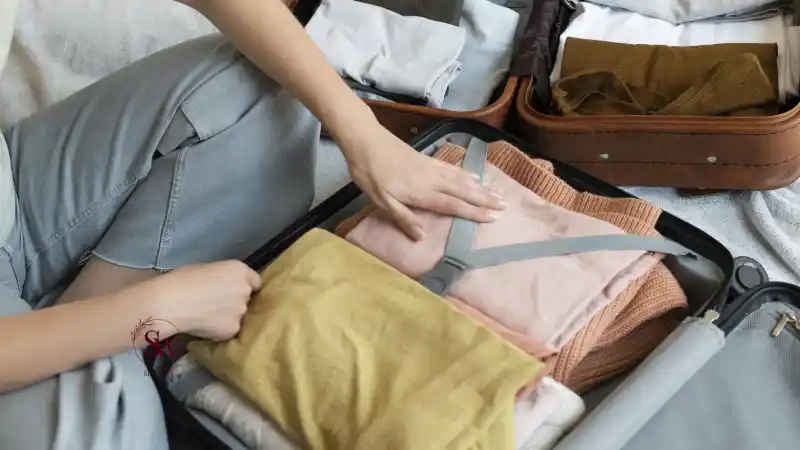
-
Prioritize Rest and Relaxation:
Prioritizing rest and relaxation is crucial when traveling during the first trimester of pregnancy. This period is often accompanied by symptoms like fatigue and morning sickness, which can be exacerbated by the demands of travel. It’s important to listen to your body and give yourself ample time for rest. Plan your itinerary with built-in downtime to allow for relaxation and rejuvenation. Avoid overexertion and strenuous activities that may drain your energy levels. Instead, focus on leisurely activities that promote relaxation, such as gentle walks, prenatal yoga, or simply taking time to unwind in a peaceful setting.
When choosing accommodations, opt for a comfortable and quiet environment that promotes restful sleep. Consider amenities like comfortable beds, blackout curtains, and reduced noise levels. Take advantage of opportunities to take short naps or breaks throughout the day to recharge. Remember, pregnancy is a time of significant physical and emotional changes, and allowing yourself moments of rest and relaxation can help reduce stress, promote overall well-being, and ensure a more enjoyable travel experience.
-
Be Mindful of Food and Beverages:
Being mindful of food and beverages is crucial when traveling during the first trimester of pregnancy. It’s important to prioritize the safety and quality of the meals you consume to avoid any potential risks. Avoid consuming raw or undercooked foods, as they may harbor harmful bacteria such as salmonella or listeria. Opt for fully cooked meals, and ensure that meat, poultry, and seafood are cooked thoroughly. Additionally, avoid unpasteurized dairy products and soft cheeses, as they may contain bacteria that can be harmful to both you and your baby. Stick to pasteurized dairy products and opt for hard cheeses instead.
When it comes to beverages, be cautious about the water you consume. In some destinations, tap water may not be safe for drinking due to potential contaminants. It’s advisable to drink bottled water or use water purification methods such as boiling or using water purification tablets. This applies not only to drinking water but also to beverages made with water, such as coffee or tea. Additionally, be mindful of caffeine intake, as excessive amounts can affect your sleep patterns and potentially impact your pregnancy. Limit your consumption of caffeinated beverages and opt for decaffeinated alternatives whenever possible.
By being mindful of the food and beverages you consume, you can reduce the risk of foodborne illnesses and maintain a healthy diet during your travels. Prioritize foods that are cooked thoroughly and pasteurized, and choose safe drinking water sources to ensure your well-being and the well-being of your baby. Always consult your healthcare provider for specific dietary recommendations and guidelines based on your individual needs and circumstances.

-
Take Precautions for Air Travel:
Taking precautions for air travel is important when traveling during the first trimester of pregnancy. Firstly, it’s essential to inform the airline about your pregnancy when booking your flight. Most airlines have specific policies and guidelines for pregnant passengers, particularly in the later stages of pregnancy. By notifying the airline in advance, they can provide you with necessary information and ensure your comfort and safety during the flight.
During the flight, consider wearing compression socks to improve circulation and reduce the risk of blood clots. Pregnancy increases the risk of deep vein thrombosis, and long periods of sitting in a cramped space can exacerbate this risk. Compression socks help promote healthy blood flow in the legs. Additionally, make sure to get up and walk around the cabin periodically to stretch your legs and keep the blood flowing. This can help prevent swelling and discomfort. Remember to hydrate by drinking plenty of water throughout the flight and avoid consuming excessive amounts of caffeine, as it can contribute to dehydration. Follow the guidelines and recommendations provided by the airline, and consult your healthcare provider for any additional precautions specific to your pregnancy and travel plans.
-
Stay Informed about Travel Restrictions:
Staying informed about travel restrictions is crucial when traveling during the first trimester of pregnancy, especially in light of the ongoing COVID-19 pandemic. Prior to your trip, research and stay updated on any travel advisories or restrictions in place for your destination. This includes checking for entry requirements, quarantine protocols, and any specific regulations related to pregnant travelers. Some countries or regions may have specific guidelines or restrictions for pregnant individuals due to health concerns or other factors.
In addition to COVID-19 restrictions, it’s important to be aware of any other travel advisories or warnings that may impact your safety or well-being. Keep an eye on government websites, travel advisories, and reputable news sources for the latest information. It’s advisable to register with your country’s embassy or consulate in the destination country, as they can provide valuable assistance and information in case of emergencies. By staying informed about travel restrictions, you can make necessary adjustments to your plans, ensure a smoother travel experience, and prioritize your health and safety during the first trimester of pregnancy.

FAQ About Traveling During First Trimester of Pregnancy
- Is it safe to travel during the first trimester of pregnancy?
Generally, it is safe to travel during the first trimester of pregnancy. However, it’s important to consult with your healthcare provider before making any travel plans. They can assess your specific medical history, any complications or risks, and provide personalized advice based on your individual circumstances.
- Are there any specific precautions I should take while traveling during the first trimester of pregnancy?
Yes, there are a few precautions to consider. Prioritize rest and relaxation, listen to your body, and take breaks as needed. Stay hydrated by drinking plenty of water and avoid excessive caffeine intake. Choose destinations with accessible healthcare facilities and be mindful of food and water safety. Additionally, be aware of any travel restrictions or advisories, and follow the guidelines provided by airlines and relevant authorities.
- What if I experience morning sickness or other pregnancy symptoms while traveling during the first trimester?
It’s common to experience symptoms like morning sickness, fatigue, and nausea during the first trimester. To manage these symptoms while traveling, pack snacks that can help alleviate nausea, such as crackers or ginger candies. Take advantage of breaks and rest periods to relax and rejuvenate. If necessary, consult with your healthcare provider for advice on managing these symptoms and any potential medication adjustments that may be needed.
Conclusion:
Traveling during the first trimester of pregnancy can be a safe and enjoyable experience with proper planning and precautions. Prioritize your health and the well-being of your baby by consulting with your healthcare provider, choosing suitable destinations, and taking necessary measures to ensure comfort and safety throughout your journey. By following these tips and considerations, you can create beautiful memories while embracing the joy of travel during this special time in your life.
Also read: Are Travel Pillows Worth It

